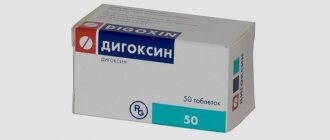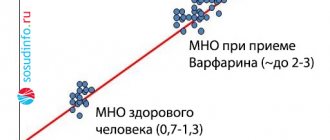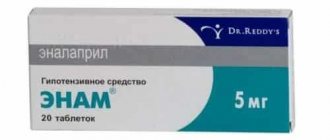Pharmacodynamics and pharmacokinetics
This drug reduces the level of sodium ions in the vascular wall, blood pressure , arterial vascular tone, peripheral , and also increases diuresis . The hypotensive effect lasts throughout the day.
Thus, the drug is effective in cases of arterial hypertension . The hypotensive effect of the active components of the drug complements each other. Therapy with this drug is more effective in most cases for arterial hypertension than the use of enalapril maleate and hydrochlorothiazide separately.
Enalapril is an ACE inhibitor . Once absorbed it is metabolized to enalaprilat . Its action leads to a decrease in the level of angiotensin II in plasma, which increases the activity renin and decreases the secretion of aldosterone . In addition, enalapril prevents the destruction of bradykinin .
The decrease in blood pressure is accompanied by a decrease in total peripheral vascular resistance and a slight increase in cardiac output. The drug increases renal blood flow . the glomerular filtration rate does not change , unless it was initially reduced in patients.
Hydrochlorothiazide is a diuretic and antihypertensive agent that helps increase renin . Thus, when combined with enalapril , it results in a greater reduction in blood pressure . Discontinuation of the drug does not cause its sharp increase.
The maximum effect, as a rule, appears 2-4 hours after application. The hypotensive effect is noticeable within an hour.
The duration of action of the medicine largely depends on the dosage. As a rule, it lasts throughout the day.
Release form and composition
Ko-Renitec is produced in the form of yellow round tablets with a grooved edge. The active ingredients are enalapril maleate and hydrochlorothiazide. One tablet of the drug contains 20 milligrams of enalapril maleate and 12.5 milligrams of hydrochlorothiazide.
Among the excipients: aqueous lactose, sodium bicarbonate, corn starch and pregelatinized corn starch, magnesium stearate, yellow iron oxide dye. There are seven tablets in blister packs, and fifty-six tablets in polyethylene bottles.
Contraindications
Co-Renitec should not be used in case of hypersensitivity to its components, childhood , anuria , history of angioedema , as well as hereditary or idiopathic angioedema .
This drug is prescribed with caution for:
- bilateral renal artery stenosis ;
- coronary heart disease;
- aortic stenosis;
- severe systemic connective tissue diseases;
- diabetes mellitus;
- condition after kidney transplantation;
- a diet with limited sodium content;
- old age;
- cerebrovascular diseases;
- chronic heart failure ;
- renal failure;
- inhibition of bone marrow hematopoiesis;
- conditions accompanied by a decrease in circulating blood volume;
- liver failure;
- hyperkalemia;
- stenosis of the artery of a single kidney.
special instructions
Symptomatic hypertension may occur during use of Co-Renitec. Monitor for clinical signs of fluid and electrolyte disturbances, including dehydration, hypochloremic alkalosis, hyponatremia, hypomagnesemia, or hypokalemia, which may occur due to episodes of vomiting or diarrhea. In such patients, during therapy it is necessary to periodically determine the electrolyte composition of the blood at certain intervals.
Co-Renitek is prescribed with extreme caution for coronary heart disease or cerebrovascular diseases, since an excessive decrease in blood pressure can lead to stroke or myocardial infarction.
In cases of arterial hypotension, bed rest and, if necessary, intravenous administration of saline are indicated. When prescribing Co-Renitek, transient arterial hypotension is not a contraindication to its further use. After normalization of blood pressure and circulating blood volume, treatment can be resumed either in slightly reduced doses, or by taking each of the components of the drug separately.
In case of renal failure (creatinine clearance <80 ml per minute), Co-Renitec should not be prescribed until the selection of its individual components shows that the required doses are present in this dosage form for a given patient.
In some patients without any signs of kidney disease before starting therapy, when using enalapril in combination with a diuretic, a slight and transient increase in serum creatinine and blood urea may occur. In such cases, therapy is stopped. Resumption of treatment in the future is possible either in slightly reduced doses, or by taking each of the components of the drug separately.
Like other drugs with a vasodilating effect, Co-Renitek should be taken with caution by patients in whom the outflow of blood from the left ventricle of the heart is difficult.
Sometimes, with bilateral renal artery stenosis or stenosis of the artery of a single kidney, an increase in serum creatinine and urea in the blood is observed when using Co-Renitec. As a rule, these changes are reversible, and after cessation of treatment the indicators return to normal.
Thiazide diuretics should be used with caution in patients with progressive liver diseases or impaired liver function, since even minor changes in water and electrolyte balance can lead to the development of hepatic coma.
When performing major surgical operations or during general anesthesia with the use of drugs that cause arterial hypotension, enalaprilat may block the formation of angiotensin II, which is caused by compensatory release of renin. If severe arterial hypotension occurs, which can be caused by a similar mechanism, it can be corrected by increasing the volume of circulating blood.
Co-Renitec may lead to the development of impaired glucose tolerance. In this case, the dosage of hypoglycemic drugs, including insulin, is usually adjusted.
Co-Renitec may reduce urinary calcium excretion and may also slightly and transiently increase serum calcium levels. Severe hypercalcemia may be a symptom of latent hyperparathyroidism. Before testing the function of the parathyroid glands, thiazides should be interrupted.
Increases in cholesterol and triglyceride levels may also be associated with the use of thiazide diuretics, however, with a dose of hydrochlorothiazide of 12.5 mg, such effects are usually either absent or insignificant.
In some patients, the use of thiazides can lead to the development of hyperuricemia and/or gout. However, enalapril may increase uric acid levels in the urine and thereby weaken the hyperuricemic effect of hydrochlorothiazide.
Rare cases of angioedema of the extremities, face, tongue, lips, larynx and/or glottis have been described with the use of enalapril maleate. These disorders can develop at any stage of therapy. In such cases, you should immediately stop taking Co-Renitec and carefully monitor the patient’s condition to monitor and correct clinical signs. Even if there is only swelling of the tongue without swelling of the respiratory organs, patients may require prolonged observation, since the use of antihistamines and corticosteroids may not be sufficient.
In cases where swelling is localized in the area of the tongue, larynx or glottis, which can cause airway obstruction, it is necessary to quickly inject 0.3-0.5 ml of a 0.1% solution of adrenaline (epinephrine) subcutaneously and ensure airway patency .
In black patients taking angiotensin-converting enzyme inhibitors, angioedema was observed more often than in other patients.
If there is a history of angioedema, which is not associated with taking angiotensin-converting enzyme inhibitors, the risk of developing angioedema significantly increases during therapy.
In patients receiving thiazides, allergic reactions may develop regardless of a history of bronchial asthma or allergic conditions. There are reports of worsening severity or relapse of systemic lupus erythematosus in patients receiving thiazides.
In rare cases, patients receiving angiotensin-converting enzyme inhibitors have experienced cases of life-threatening anaphylactoid reactions during hyposensitization with an allergen from the venom of Hymenoptera. Such violations can be avoided if you temporarily interrupt the use of Co-Renitec before the start of hyposensitization.
Cases of cough have been reported with the use of angiotensin-converting enzyme inhibitors. Usually the cough is dry, persistent and goes away after the end of therapy (must be taken into account when carrying out differential diagnosis).
Impact on the ability to drive vehicles and complex mechanisms
When taking Co-Renitec, patients driving vehicles or working with complex machinery should take into account the risk of developing weakness or dizziness.
Side effects
Negative side effects, according to research, are usually moderate in nature. They usually do not require discontinuation of therapy. Side effects may be as follows:
- respiratory system – shortness of breath, cough;
- CVS - palpitations, orthostatic effects, fainting, arterial hypotension , chest pain, tachycardia ;
- musculoskeletal system - the appearance of muscle cramps, pain in the joints;
- kidneys – development of renal failure , problems with kidney function;
- laboratory indicators – hyperglycemia , hyperkalemia , hypokalemia , hyperuricemia , decreased hematocrit and hemoglobin ;
- CNS – dizziness , increased excitability, asthenia , paresthesia , increased fatigue, drowsiness , headache , sleep disturbances ;
- digestive system - dyspepsia , diarrhea , nausea, flatulence , dry mouth, vomiting, abdominal pain, constipation , pancreatitis ;
- allergies – itching , rash;
- reproductive system – development of impotence , decreased libido;
- others – tinnitus, gout .
In addition, in rare cases, when taking the medicine, undesirable manifestations such as angioedema of the glottis, limbs, tongue, face, larynx, lips, Stevens-Johnson syndrome , intestinal Quincke's edema , hyperhidrosis .
Instructions for use Co-Renitek (Method and dosage)
This medication is taken orally , one tablet once a day. If necessary, the dosage can be increased to two tablets per day.
Instructions for use Co-Renitek recommends monitoring water and electrolyte balance data. If the patient has previously taken diuretics , you must wait 2-3 days before using Co-Renitec tablets. In cases where there is an increase in urea and creatinine in the blood, the use of the drug should be discontinued.
Use during pregnancy and lactation
It is not recommended to prescribe Co-Renitec during pregnancy. If pregnancy is established, the drug should be stopped immediately.
Taking ACE inhibitors in the second or third trimesters of pregnancy significantly increases the risk of disease or death of the fetus or newborn. The negative impact of these substances on the fetus or child is expressed in the form of cranial hypoplasia and/or hyperkalemia, renal failure, and arterial hypotension. In some cases, oligohydramnios develops, probably due to fetal kidney dysfunction. This complication can lead to hypoplasia of the lungs, deformation of the skull, including its facial part, and contracture of the limbs.
The use of diuretics in pregnant women is not recommended due to the high risk of thrombocytopenia, jaundice in the fetus and newborn, and other possible side effects observed in adult patients.
When prescribing Co-Renitec during pregnancy, a woman should be warned about the potential risks to the fetus. In those few cases where it is not possible to avoid taking it, it is necessary to regularly conduct ultrasound examinations to monitor the condition of the fetus, as well as the intra-amniotic space.
Newborns whose mothers took the drug should be carefully monitored for the development of hyperkalemia, oliguria and hypotension. Enalapril, which crosses the placental barrier, is removed from the child's circulatory system through peritoneal dialysis. In this case, a favorable clinical effect is observed. Theoretically, the substance can also be removed by exchange transfusion.
Enalapril and hydrochlorothiazide pass into breast milk. Therefore, if it is necessary to use Co-Renitec during lactation, breastfeeding is canceled.
Interaction
Co-Renitec can be used with other antihypertensive drugs. Then the summation of the action is observed. In combination with potassium supplements, potassium-containing salts and potassium-sparing diuretics hyperkalemia is likely .
When interacting with lithium drugs, lithium excretion through the kidneys is reduced. lithium intoxication increases .
NSAIDs reduce the effect of the drug. And if they are taken by patients with kidney function problems, this combination can lead to a deterioration in kidney function. But these changes are reversible.
The hypotensive effect of the drug is reduced by estrogens and ethanol . Immunosuppressants , cytostatics and Allopurinol increase the likelihood of hematotoxicity .
Drug interactions
When Co-Renitec is used simultaneously with certain medications, the following undesirable effects may occur:
- Other antihypertensive drugs: summation of effect;
- Potassium supplements, potassium-sparing diuretics or potassium-containing salts (especially in patients with renal failure): a significant increase in serum potassium levels;
- Lithium preparations: decreased excretion of lithium by the kidneys and increased risk of developing lithium intoxication;
- Non-steroidal anti-inflammatory drugs, including selective COX-2 inhibitors, ethanol, estrogens: reducing the hypotensive effect of Co-Renitec;
- Allopurinol, immunosuppressants, cytostatics: increased risk of hematotoxicity;
- Thiazide diuretics: enhancing the effect of tubocurarine.
Analogues of Ko-Renitek
Level 4 ATX code matches:
Akkuzid
Enap N
Iruzid
Co-Diroton
Enalozide
Enap NL
Enapril-N
Capozide
Tritace Plus
Enzix
Liprazid
Hartil N
Hartil D
Noliprel
Ko-Perineva
Kaptopres
The following analogues of Co-Renitek are sold in pharmacies:
- Enalapril-HL-Health;
- Berlipril Plus;
- Ena Sandoz Compositum;
- Enalapril-H-Health;
- Enalozide;
- Enalozid Forte;
- Enap-N;
- Enap-HL;
- Enapril-N.
Co-Renitek price, where to buy
The price of Co-Renitek, which contains 28 tablets per package, is on average about 340 rubles.
- Online pharmacies in RussiaRussia
- Online pharmacies in UkraineUkraine
ZdravCity
- KO-Renitek tablets 20 mg + 12.5 mg 28 pcs. Merck Sharp & Dohme BV
470 rub. order
Pharmacy Dialogue
- Co-Renitek (tab. 20/12.5 mg No. 28) Merck Sharp
RUR 581 order
show more
Pharmacy24
- Tablets Co-Renitek 20/12.5 mg No. 28 Merck Sharp i Dome B.V./Merck Sharp i Dome Limited, Netherlands/Great Britain
189 UAH order
General information about the drug
Co-Renitec provides a stable antihypertensive effect on the body and a diuretic effect to quickly reduce blood pressure. Enalapril and hydrochlorothiazide are used both in monotherapy for hypertension and as part of combination drugs, which are more effective for the treatment of high blood pressure, as well as for the treatment of cardiac pathologies that develop due to impaired blood flow.
The antihypertensive properties of the components of the drug complement each other. The effect of the dose of Co-Renitec tablet lasts throughout the day.
Medicinal group, INN. Release form and cost
The drug Co-Renitek belongs to the medicinal group of combined medications - ACE inhibitors (Enalapril) and diuretics (Hydrochlorothiazide). The INN of the drug Co-Renitec is Enalapril Maleate + Hydrochlorothiazide.
The medicine is released only in tablet form. Yellow tablets are round, with grooved edges. They are convex on both sides and are at risk of breaking. On one side of the tablet there is an engraving - “MSD 718”. The tablets are packaged in blisters of 7 pieces. The blisters, along with the annotation, are placed in cardboard boxes. Boxes contain 1, 2, 4 blisters.
The medicine is also packaged in a plastic bottle of 56 tablets. The average price for the drug Co-Renitek in the Russian Federation is presented in the table.
| Tablets (dosage in mg) | Number of tablets per package | Average price in rubles | Name of pharmacy chain |
| 20/12,5 | 14 pieces | 249 | Hello zone |
| 20/12,5 | 28 tablets | 834 | Zdrav-City |
| 20/12,5 | 28 pieces | 750 | Europharm |
| 20/12,5 | 56 tablets | 1420 | ZDRAV.ru |
Compound
Co-Renitec tablets contain the active ingredients – enalapril maleate (20 mg) and hydrochlorothiazide (12.5 mg). The tablets also contain the following auxiliary agents:
- corn starch;
- yellow iron oxide;
- lactose;
- MCC;
- sodium bicarbonate;
- sodium stearate molecules.
Analogs
Analogs of Co-Renitec are drugs that contain enalapril as an active ingredient, or drugs that have an identical mechanism of action on the body:
- Enap N is a medication used to treat hypertension in those patients for whom treatment with combination drugs is contraindicated.
- Liprazide is a medication prescribed in monotherapy for renovascular and essential hypertension, as well as in the complex treatment of high blood pressure.
- Birlipril is a drug for the complex treatment of hypertension.
See also:
At what pressure is Enap used and instructions for the drug











